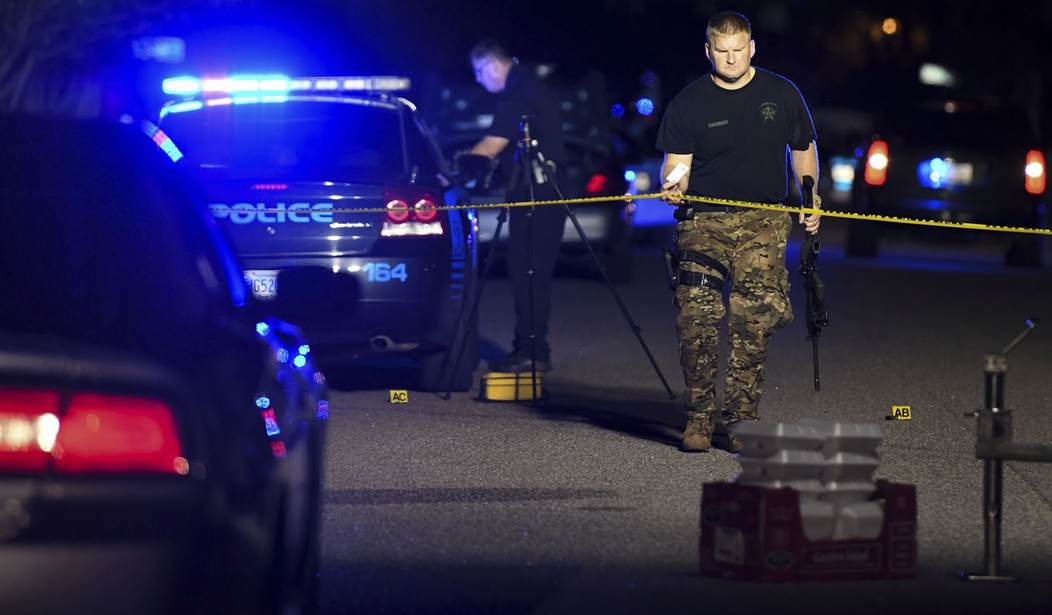Ever since the FBI released their official crime statistics for 2020, commentators from across the spectrum have been weighing in on the news, particularly the homicide rates for various parts of the country. What seemed to be obvious from the beginning was that there was no way to paint any sort of happy picture in terms of what’s been going on. It’s beyond bad. It’s disastrous. Despite the fact that this result was both predictable and preventable, something obviously has to be done to turn these numbers around. Recent polling shows that an increasing number of Americans, even including some who may have previously flirted with the idea of defunding or abolishing the police, now realize that we need to kick law enforcement back into high gear to tamp down the mayhem.
But that doesn’t mean that everyone agrees with the only logical response to all of this bloodshed. After all, this is 2021 and the world has gone more than a little bit crazy. Coming out this week against the only logical response is author and Fordham law professor John Pfaff. Writing at Slate Magazine, Pfaff serves up an opinion piece with the puzzling title, “Why Our Fixation On The Murder Rate Is Killing Us.” One of the first questions that may cross your mind at this point probably deals with asking how anyone in their right mind could not be worried about the largest single-year increase in homicides that’s ever been seen in America. The author offers up an answer. You see, while people being murdered is clearly a bad thing, even more people die from other reasons that won’t be impacted very much by putting more cops out on the streets. And no… I’m not kidding.
Following the recent release of the FBI’s crime data for 2020, which shows a 30% rise in homicides, proponents of the status quo in our criminal legal system doubled down on their demands to roll back reform and increase our investments in conventional policing strategies. This knee jerk reaction reflects overly simplistic and outdated thinking about homicide. To break our over-reliance on policing, we need to reframe how we discuss homicide trends in the first place.
Understandably, we tend to think about homicides in the context of other crimes—but we should also look at homicides in the context of other deaths. Homicide is not the only kind of death that implicates how we invest in policing. In fact, the three other significant causes of death alongside homicides among those under forty—deaths by suicide, drug overdose, and vehicular accidents—are all strongly influenced by our reliance on, or unwillingness to move away from, policing.
No matter your feelings on the subject, I would suggest that you go read that entire essay to get a look at some of the anti-police rhetoric that’s still sweeping parts of our society and the tortured mental processes that people will use to justify it. In this case, it should be fairly easy to understand, though. Looking at Pfaff’s previous work, it’s clear that he has long been fixated on “mass incarceration,” social justice issues, and proposals that include replacing police officers with “violence interrupters.” (Those are the social workers who show up with a clipboard instead of a gun to break up street violence.)
Going back to the basic premise of the essay, Pfaff argues that fixating on homicides is less productive because of the larger number of people -primarily under 40 years of age – who die each year from drug overdoses, suicide, or automobile accidents. To be fair to the author, the numbers don’t lie. Thankfully, fewer people are murdered in most areas than die of those other causes. The notable exception comes with Black men under 40, where murder is the number one cause of death today. (It’s odd how nobody in the media ever seems to want to talk about that.)
The nonsensical nature of this argument would almost be humorous were we not discussing such a grim topic. While police officers are frequently summoned to the scene to investigate overdoses, suicides and car crashes, it’s not because they expect to find a crime to solve. While suicide is (amazingly) still technically illegal in some places, nobody is getting prosecuted for it in the United States even if the attempt fails. The use of controlled substances is still illegal in most cases, but nobody is getting arrest for overdosing. And while automobile accidents frequently produce tragic results, aside from some traffic tickets, they aren’t a primary focus for the police.
Murder, on the other hand, is a crime. It’s arguably the worst crime, or at least very near the top of the list. Police have to investigate and solve murder cases and, wherever possible, prevent them from happening if they can. It’s some of the most important work that the cops do. And as we’ve been learning over the past couple of years, places that abandon broken windows policies and strong policing see increases in crimes of all types, up to and including murder.
Minneapolis remains one of the best (and saddest) examples in recent memory. They are still attempting to abolish their police department and replace some or all of their officers with social workers despite being mired in one of the worst violent crime spikes seen in decades. Cities like that one, Portland, Baltimore, and others are examples of modern, liberal societies. But they are also suicidal societies. We’re currently learning this lesson the hard way. The very, very hard way. And some places like New York City seem to be slowly waking up and realizing that the thin blue line needs to be massively reinforced. The ones who don’t will likely solve their own problems eventually through Darwinian filtering and a decreasing pool of potential victims.







Join the conversation as a VIP Member